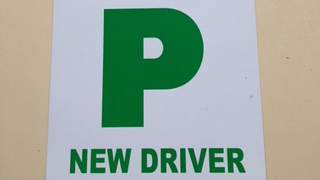After months of learning and the stress of your theory and practical driving test, you've finally passed and can drive about in your own car without any assistance or guidance from an instructor.
What's the first place you go to? Is it to pick up your friends to cruise around town with, maybe experience a drive-thru for the first time as a driver, or maybe you're still a little bit anxious about driving by yourself?
Whichever path you go down, it's important to know any particular rules and regulations for new drivers, including frequently asked questions and common myths about what you can and can't do.
We could help you terminate your car finance deal early in order to help you upgrade your car, or simply help to save you money if you feel you're paying too much. Find out if you are eligible by checking your deal below for free.
With the new freedoms that come with passing your test, come new challenges and risks. One in five new drivers crash within a year of passing their test and 1,500 are seriously injured or killed.
We've broken down some questions you probably want to know if you have recently passed your test and want some extra reassurance before you go out on the roads by yourself.
Can you drive around with passengers?
Absolutely. There's nothing better than taking your friends out for a ride or repaying your parents for all of the lifts they've given you over the years.
However, you do have to be responsible and safe and don't allow anyone to distract you. It's easy to show off after passing your test but these are the times when you need to take extra care.
Of course, you should only carry the number of passengers that are legally allowed in the car you are driving, too.
Are there any particular restrictions?
There's nothing different that isn't already in place for every other driver on the road. There have been calls for campaigns to be introduced to limit certain things new drivers can do.
Things such as not being allowed to drive after a certain time of the day, or a limit on the number of people you're allowed to carry in your car have been previously put forward but nothing has come from these ideas thus far.
Are there any penalties?
If you were to get six points on your license in the first two years of driving, your licence could be revoked and you may be forced to resit both your theory and practical tests.
Not only that but the price of your insurance could increase substantially, on top of what is already likely a high fee for a new driver.
P plates
It's not compulsory for new drivers to have P plates on their vehicles. Though after practicing with L plates on their car, some people find it a little less daunting driving while displaying P plates to let other road users that they may still be a little tentative with their driving.
Others argue that other drivers will take advantage of you and treat you like you were still a learner when in actual fact you are just as capable of driving as they are and probably are more equipped to drive safely and securely having only just been taught everything you need to know.
In Northern Ireland, new drivers are required to display an amber R 'restricted' plate for a year after passing their test. They are also not allowed to drive above 45mph.

Biggest risks for new drivers
The biggest risks that new drivers face are those that they may not have encountered while learning to drive.
These could include:
- Carrying passengers - it's easy to be distracted when others are in the car with you and unlike when you were with your instructor, you won't have someone telling you what to do or be able to control the car with the dual pedals if something were to go wrong.
- Driving at night - unless your driving instructor is flexible with their hours, the chances are you might not have driven at night. It takes a while to get used to as visibility is poorer and you can be dazzled by other cars.
- Motorway driving - this is a completely new experience for all first-time drivers and one that needs to be practiced with an experienced driver first. It's not only the speed, but the awareness of everyone around you, and trying to change lanes at that speed can be daunting for even the most seasoned drivers.
- Using your phone - this is still a common issue despite all of the warnings and risks attached to it and is easy to forget if you're a first-time driver.
So there you have it. If you've recently passed, congratulations. We hope that you are able to get out on the roads and enjoy your freedom. But please remember to take extra care and follow all of the guidance offered to you. It's a dangerous world out there!
/car-with-p-plates.jpg)


/car-tax-disc-image2.jpg)
/money-saving-tips.jpg)
/car-tax-sorn.jpg)